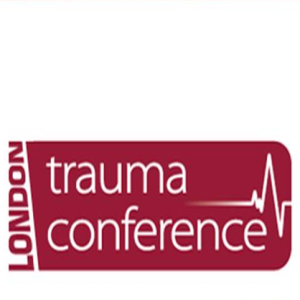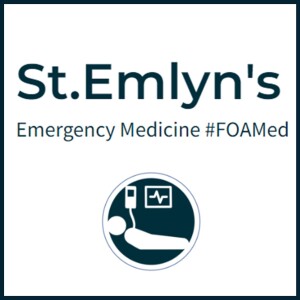
London Trauma Conference 2024: Day One Highlights
Welcome to the St Emlyn's blog! I'm Iain Beardsell, and I'm Natalie May. We’re excited to share insights from the London Trauma Conference 2024, held in the glamorous heart of Kensington, London. This year’s conference has brought together national and international experts, offering a wealth of knowledge on trauma care. Here, we’ll take you through some of the key highlights from day one, hoping to give you a feel for the event and perhaps persuade you to join us for the remaining days.
Karen Bray’s Dynamic Talk on Trauma DissectionOne of the standout sessions was Karen Bray's talk on trauma dissection. Her dynamic presentation, complemented by stunning slides, provided numerous take-home messages. For those following us on Twitter, you might have seen some key points and visuals already.
Karen’s discussion was particularly poignant given the recent tragic events in Australia involving Phil Hughes. Her ability to weave current events into her presentation added a layer of immediacy and relevance. We’ll delve deeper into her insights in a separate podcast, but suffice it to say, her talk was both enlightening and thought-provoking.
Pediatric Trauma and Research ChallengesIan McConaughey addressed the perennial issue of pediatric trauma, emphasizing the inconsistencies in pre-hospital assessments. He pointed out the challenges due to the lower incidence of pediatric trauma compared to adults, which hampers research efforts. Ross Fisher from Sheffield built on this, discussing potential pathways to overcome these barriers in pediatric trauma research.
In line with these discussions, Ian Bailey from Southampton raised critical points about the evolution of trauma surgery in the UK. He highlighted the need to attract young doctors to general and trauma surgery, questioning why this isn’t currently a structured career path. His candid approach to addressing these “elephants in the room” was refreshing and necessary for future improvements in trauma care.
The Helmet Debate: To Mandate or Not?One of the liveliest sessions featured a debate between Mark Wilson and Karim Brohi on the use of cycling helmets. This debate sparked significant discussion on Twitter. The crux of the debate was whether making helmets mandatory would reduce cycling participation and thereby negate the overall health benefits. Ultimately, Karim won with the argument that helmets should remain a choice rather than a mandate, but the conversation is far from over.
Impact Brain Apnea: A New MechanismWe also had a compelling discussion with Gareth Davies on impact brain apnea—a newly recognized mechanism where a head injury can temporarily stop breathing. This simple yet critical understanding could reshape how we manage head trauma in the initial stages. Stay tuned for an upcoming podcast where we’ll explore this topic further.
Chris Moran on the Future of Trauma CareProfessor Chris Moran, a leading figure in trauma care in England, provided an insightful talk on the progress of major trauma centers over recent years. He also addressed the contentious issue of whether the focus should shift from in-hospital care to pre-hospital phases or rehabilitation. Surprisingly, he advocated for greater emphasis on rehabilitation, sparking a gut reaction among many attendees. However, upon reflection, the audience began to see the merit in his argument. Rehabilitation, though less glamorous than pre-hospital interventions, plays a crucial role in patient recovery and long-term outcomes.
Practical Insights on Chest Trauma and Rib FracturesDoug West, a cardiothoracic surgeon from Bristol, delivered a practical talk on chest trauma, particularly the management of rib fractures. He highlighted the disparity in practices across centers, with some performing rib fixation regularly and others not at all. This variation underscores the need for standardized protocols and further research.
Tim Moll on Trauma in MotorsportTim Moll gave an entertaining and informative presentation on trauma in motorsport, a field with a historically high injury rate. He focused on the unique challenges of managing injuries in this sport, emphasizing the importance of understanding the specialized gear and protocols involved. This talk was enhanced by the presence of John Hinds, a veteran motorsport doctor, who added his invaluable perspective.
The Complex Relationship Between Shock and Blood PressureTim Harris’s session on shock was another highlight. He challenged the traditional view that blood pressure is a direct surrogate for shock, emphasizing instead that shock is defined by inadequate oxygen delivery to tissues. This nuanced understanding is critical for trauma team leaders in managing hypotensive patients more effectively.
Looking Ahead: Day Two at the London Trauma ConferenceAs we wrap up day one, we’re looking forward to another full day of insightful sessions. Tomorrow’s program includes talks focused on patients requiring special consideration—such as the elderly, pediatric trauma cases, and trauma during pregnancy. These sessions promise to provide valuable knowledge for tailoring trauma care to these vulnerable populations.
Additionally, there will be master classes and breakaway sessions on remote critical care and core topics in trauma, as well as a full day dedicated to motorsport medicine. If you’re in the area, it’s not too late to join us. Turn up at the door, and you might find a space available.
Engage with UsWe’re the slightly tired but enthusiastic team running around Kensington, usually attached to our mobile phones or computers. If you see us, please say hello! We’d love to meet our listeners and readers. If you have any questions for the speakers, reach out to us, and we’ll try to include them in a special follow-up podcast.
From the beautiful, Christmassy setting of Kensington, the St Emlyn’s team at the London Trauma Conference wishes you a good evening. We’ll be back with more updates tomorrow. Thank you for listening and following along.
More Episodes
 2022-12-10
2022-12-10
 4.4k
4.4k
 2022-11-27
2022-11-27
 4.7k
4.7k
 2022-11-14
2022-11-14
 4.1k
4.1k
 2022-10-18
2022-10-18
 4.5k
4.5k
 2022-10-08
2022-10-08
 4.2k
4.2k
 2022-08-07
2022-08-07
 4.8k
4.8k
 2022-06-16
2022-06-16
 4.8k
4.8k
 2022-05-12
2022-05-12
 5.0k
5.0k
 2022-03-25
2022-03-25
 5.4k
5.4k
 2022-02-22
2022-02-22
 5.9k
5.9k
 2022-01-14
2022-01-14
 5.3k
5.3k
 2021-12-14
2021-12-14
 5.1k
5.1k
 2021-11-19
2021-11-19
 5.4k
5.4k
 2021-09-25
2021-09-25
 5.7k
5.7k
 2021-08-08
2021-08-08
 5.8k
5.8k
 2021-06-17
2021-06-17
 5.0k
5.0k
 2021-05-26
2021-05-26
 4.6k
4.6k
 2021-05-20
2021-05-20
 4.4k
4.4k
 2021-05-14
2021-05-14
 3.6k
3.6k
Create your
podcast in
minutes
- Full-featured podcast site
- Unlimited storage and bandwidth
- Comprehensive podcast stats
- Distribute to Apple Podcasts, Spotify, and more
- Make money with your podcast
It is Free
- Privacy Policy
- Cookie Policy
- Terms of Use
- Consent Preferences
- Copyright © 2015-2024 Podbean.com




